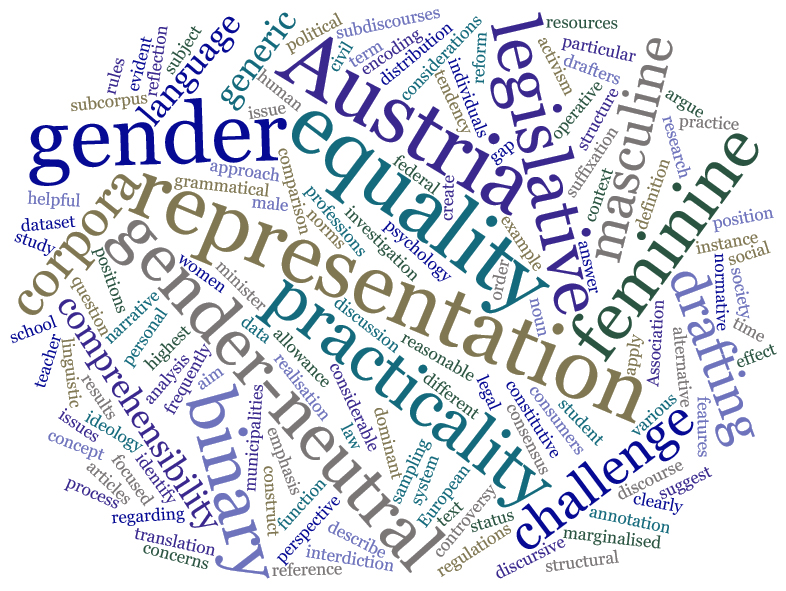Abstract
Art. 7 para 1 of the Austrian Federal Constitutional Act decrees: “All citizens are equal before the law. Privileges of birth, gender, civil status, class and creed are ruled out” (original: „Alle Staatsbürger sind vor dem Gesetz gleich. Vorrechte der Geburt, des Geschlechtes, des Standes, der Klasse und des Bekenntnisses sind ausgeschlossen“, authors’ emphasis and translation). Research on the representation of gender in normative texts is scarce for legislative drafting in Austria. This paper focuses on the three interconnected issues of comprehensibility, gender inclusivity and practicality in legislative drafting. 600 Austrian normative texts were collected by random sampling and subsequently XML-annotated. The texts were then subjected to a corpus-aided quantitative and qualitative analysis of all gender references attested. The following research questions form the basis of the inquiry:
RQ1: Which tendencies of gender representation are identifiable in normative texts currently in effect?
RQ2: Can the predominance of androcentric representation in Austrian normative texts be empirically observable? If so, how?
It is found that representation of gender in Austrian normative texts tends to be encoded by means of the generic masculine (GM) and only in exceptional cases by a generic feminine (GF). The GM functions as an umbrella concept used to refer to all legal subjects. This in turn creates groups of those who are named in the law and those who remain silenced or marginalised. It is therefore argued that a critique of the masculine used in general such as citizen (Staatsbürger M) is reasonable in legislative drafting practices. The high frequency of the GM in normative texts may be explained by the socially constructed gender-sex congruence and the morpho-semantic coincidence of the nomen agentis with the GM.

This work is licensed under a Creative Commons Attribution-NonCommercial-NoDerivatives 4.0 International License.
Copyright (c) 2021 Zeitschrift für Europäische Rechtslinguistik (ZERL)

